Acne Treatment Selector
Select Your Situation
Your Recommendation:
Quick Takeaways
- Tretiva (isotretinoin) is the most powerful oral acne drug but needs strict monitoring.
- Topical retinoids, oral antibiotics, and hormonal therapy work for mild‑to‑moderate acne with fewer side effects.
- Cost, treatment length, and pregnancy restrictions are the biggest factors in picking an alternative.
- Combination therapy (e.g., benzoyl peroxide + topical retinoid) often matches isotretinoin’s results for many patients.
- Always discuss lab work and mental‑health screening before starting any oral retinoid.
What Is Tretiva the brand name for oral isotretinoin, a potent vitaminA derivative used to treat severe nodular acne?
Developed in the 1980s, Isotretinoin is the active ingredient behind brand names like Tretiva, Accutane, and RoAccutane and is classified as a systemic retinoid. It’s typically reserved for patients who have tried topical agents and oral antibiotics without success, or for those with scarring‑prone, cystic lesions.
How Does It Work?
Isotretinoin reduces sebum production by shrinking sebaceous glands, normalizes skin cell turnover, and has anti‑inflammatory properties. Because it targets three of the four major acne causes, clearance rates often exceed 80% after a 4‑to‑6‑month course.
Who Should Consider Tretiva?
- Patients with GradeIII or IV nodular acne.
- Individuals with a history of severe scarring.
- People who have not responded to topical retinoids, oral antibiotics, or hormonal therapy.
Because isotretinoin is teratogenic, women of child‑bearing potential must commit to two reliable forms of contraception and undergo monthly pregnancy tests.
Top Alternatives to Consider
Below is a quick snapshot of the most common non‑isotretinoin options. Each alternative is described once with structured data so search engines can map the entities.
- Adapalene a third‑generation topical retinoid available over the counter as 0.1% gel or prescription 0.3% cream - works by unclogging pores and reducing inflammation; ideal for mild‑to‑moderate acne.
- Doxycycline a tetracycline antibiotic taken orally, commonly prescribed at 100mg daily for 3‑6 months - targets the bacteria Cutibacterium acnes and offers anti‑inflammatory benefits.
- Oral Contraceptives combined estrogen‑progestin pills that regulate hormones and reduce sebum output - especially effective for hormonal breakout patterns in women.
- Benzoyl Peroxide a topical oxidizing agent that kills acne‑causing bacteria and helps prevent resistance - often combined with a retinoid for synergistic effect.
- Azelaic Acid a naturally occurring dicarboxylic acid that reduces keratin buildup and has mild antibacterial activity - suited for sensitive skin and post‑inflammatory hyperpigmentation.
- Spironolactone an oral diuretic with anti‑androgen effects, prescribed off‑label for adult female acne - useful when hormonal fluctuations dominate the breakout pattern.
- Photodynamic Therapy (PDT) a light‑based procedure that applies a photosensitizer to the skin and activates it with specific wavelengths to reduce sebaceous gland activity - a non‑drug option for patients who cannot tolerate systemic medications.
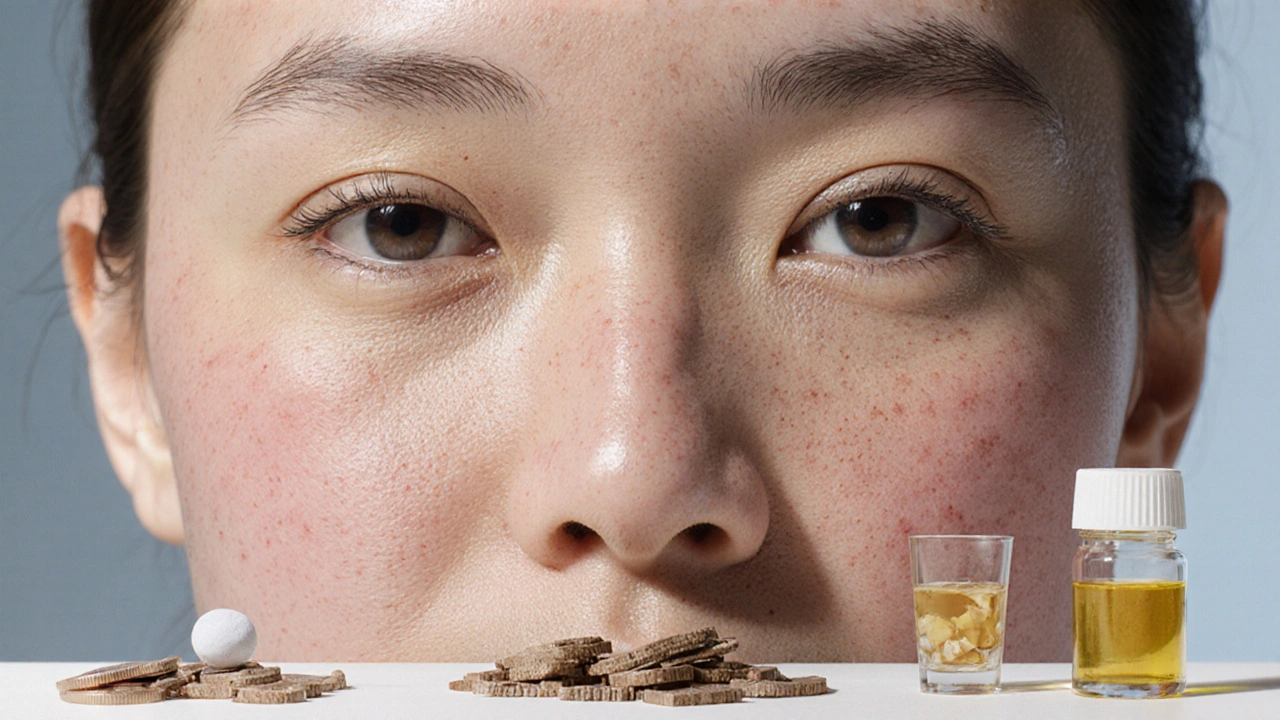
Side‑Effect Profile: How The Alternatives Stack Up
Side effects often drive the final decision. Isotretinoin’s biggest risks are dry skin, elevated liver enzymes, and birth defects. In contrast, topical retinoids mainly cause irritation, while oral antibiotics can lead to gastrointestinal upset and rare antibiotic resistance. Hormonal therapies may cause weight gain or mood changes, and spironolactone can raise potassium levels.
Cost & Insurance Considerations
Insurance plans frequently cover isotretinoin after a prior‑authorization process, but out‑of‑pocket costs can still reach several hundred dollars per month. Generic doxycycline is usually <$10 per month, and over‑the‑counter benzoyl peroxide is <$5. Prescription‑only topical retinoids like adapalene cost $30‑$50 for a month's supply. Hormonal pills vary widely; many are covered under standard contraception benefits.
Head‑to‑Head Comparison
| Attribute | Tretiva (Isotretinoin) | Adapalene (Topical) | Doxycycline (Oral Antibiotic) | Oral Contraceptives | Benzoyl Peroxide (Topical) |
|---|---|---|---|---|---|
| Efficacy (clearance %) | 80‑90% | 30‑45% | 40‑55% | 30‑45% | 20‑30% |
| Typical Treatment Length | 4‑6months | ongoing | 3‑6months | ongoing | ongoing |
| Major Side Effects | dry skin, liver elevation, teratogenic | local irritation, photosensitivity | GI upset, photosensitivity | weight gain, mood swings | dryness, irritation |
| Monitoring Needed | monthly labs (LFTs, lipids), pregnancy test | none unless irritation | none unless prolonged use | none | none |
| Typical Cost (US$) | ~$200‑$300 per month | $30‑$50 per month | $10‑$15 per month | $15‑$30 per month | $5‑$10 per month |
The table shows why isotretinoin remains the go‑to for stubborn, scarring acne, but for many patients the lower‑risk alternatives provide a reasonable balance of effectiveness and safety.
Decision Guide: Choosing the Right Path
- Assess severity. If you have deep cysts or rapid scarring, isotretinoin is usually recommended.
- Check contraindications. Pregnancy, severe liver disease, or uncontrolled lipid disorders make isotretinoin a no‑go.
- Consider lifestyle. Daily lab draws and strict contraception can be burdensome; if that feels overwhelming, start with a topical‑plus‑oral‑antibiotic combo.
- Factor in cost. Insurance coverage varies; a high‑deductible plan might make doxycycline or adapalene more affordable.
- Plan for maintenance. Even after isotretinoin, many dermatologists prescribe a low‑dose retinoid or benzoyl peroxide to keep breakouts at bay.
Remember, acne is a chronic condition. Switching or stacking treatments is common, and a dermatologist can tailor the regimen to your skin type and medical history.
Common Pitfalls and How to Avoid Them
- Skipping labs. Missing a monthly liver‑function test can let serious toxicity go unnoticed.
- Not moisturizing. Isotretinoin dries out the skin dramatically; a fragrance‑free moisturizer reduces peeling and improves compliance.
- Overusing benzoyl peroxide. While effective, applying too much can cause excessive dryness and exacerbate irritation when paired with a retinoid.
- Ignoring mental‑health checks. A small subset of patients report mood changes on isotretinoin; regular check‑ins with a therapist or primary care provider are wise.
Frequently Asked Questions
Can I use Tretiva and a topical retinoid at the same time?
Combining two systemic retinoids magnifies dryness and irritation, so dermatologists usually pause the topical retinoid during isotretinoin therapy. Once the course ends, a low‑dose topical can be re‑introduced to maintain results.
How long does it take to see improvement with Tretiva?
Most patients notice a reduction in new lesions within 4‑6 weeks, but full clearance often requires the entire 4‑to‑6‑month course.
Are there non‑drug options for severe acne?
Yes. Light‑based therapies such as photodynamic therapy or laser resurfacing can reduce sebaceous activity and improve scarring, though they are typically adjuncts rather than first‑line replacements for isotretinoin.
What should I do if I miss a dose of Tretiva?
Take the missed tablet as soon as you remember unless it’s close to the next dose. Do not double up; just continue with the regular schedule.
Is isotretinoin safe for teenagers?
Teenagers can use isotretinoin, but clinicians weigh the benefits against potential effects on growth plates and mental health. Close monitoring is essential.

Next Steps
If you think you qualify for Tretiva or any of the alternatives, schedule a consultation with a board‑certified dermatologist. Bring a list of current medications, any existing health conditions, and a clear picture of your acne history. Together you can map out a treatment timeline, set up lab appointments, and decide on a maintenance plan that fits your budget and lifestyle.
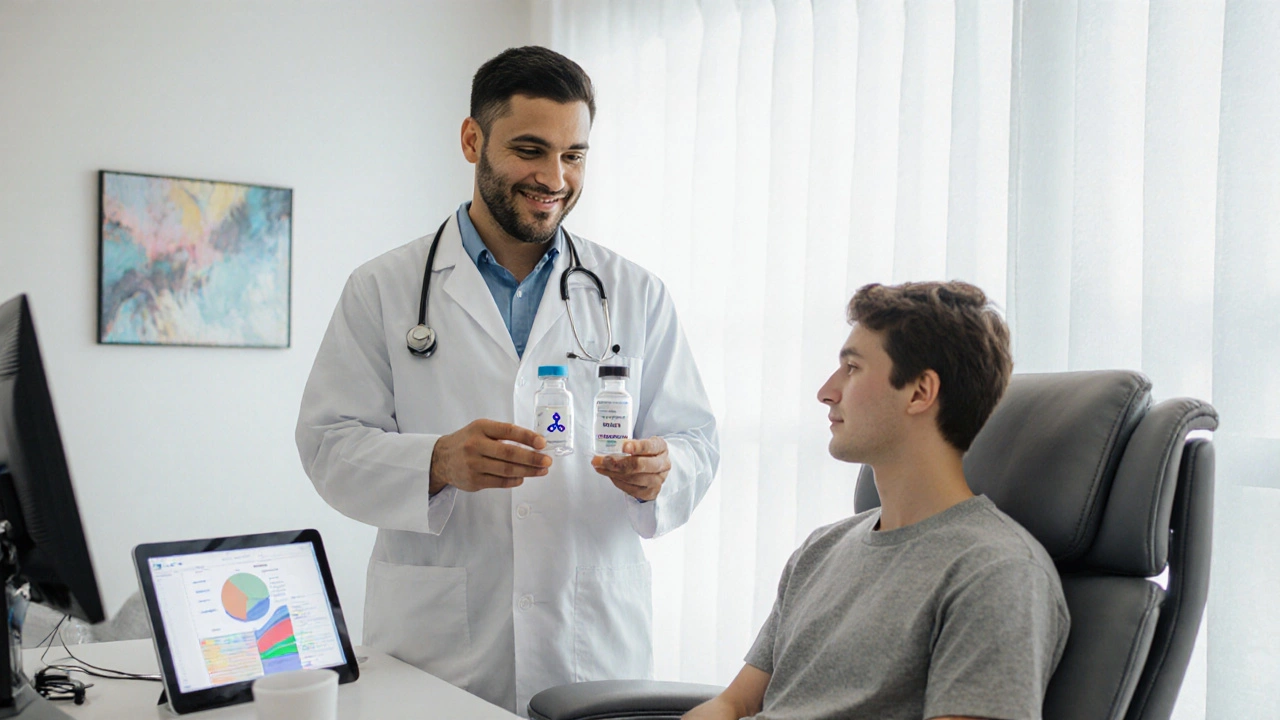
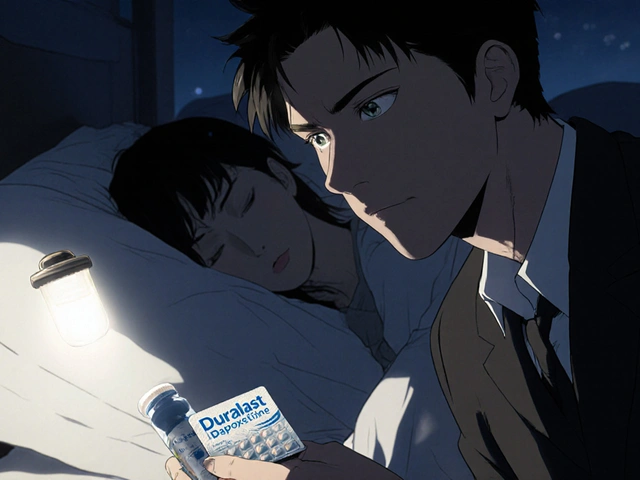

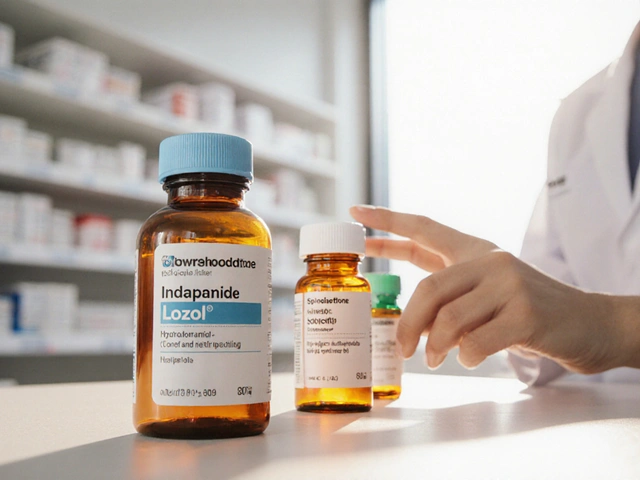
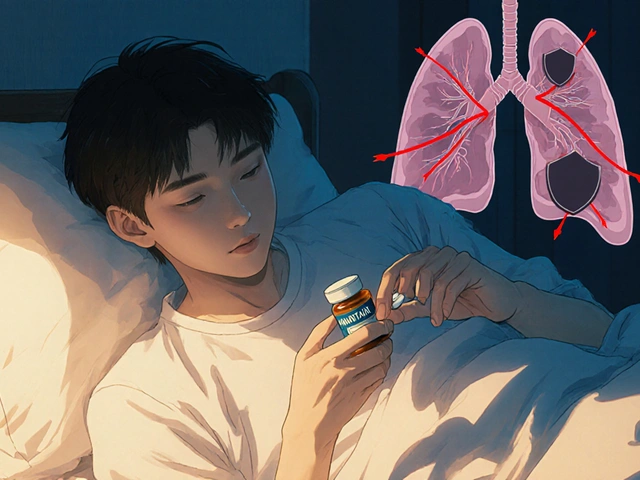

Ellie Hartman
28 September 2025 - 16:57 PM
Hey there! If you’re feeling overwhelmed by all the options, start by pinning down how severe your acne really is. For mild cases, a simple topical retinoid can do the trick without the heavy side‑effects of isotretinoin. Moderate breakouts often respond well to a combo of benzoyl peroxide and a gentle retinoid. And if you’re dealing with nodular, cystic acne that’s scar‑prone, a dermatologist‑supervised course of Tretiva might be worth considering.
Alyssa Griffiths
2 October 2025 - 00:09 AM
Let’s cut through the glossy marketing; isotretinoin isn’t just a miracle drug, it’s a calculated tool in the grand scheme of pharmaceutical profit‑maximization, and every glossy brochure you see is laced with subtle coercion; the FDA’s “strict monitoring” protocol is a veneer, a smokescreen designed to keep the public complacent while the industry siphons billions, and the mandatory iPLEDGE program? Pure bureaucratic theatre, a labyrinthine system that ensures only the compliant survive, all while you’re left juggling contraception and monthly blood tests, which-if you haven’t noticed-creates a perfect feedback loop of dependency.
Jason Divinity
5 October 2025 - 07:21 AM
From a mechanistic standpoint, isotretinoin epitomizes the convergence of pharmacodynamics and ontology; it exerts its influence by attenuating sebaceous gland hypertrophy, modulating keratinocyte differentiation, and quelling inflammatory cascades-an alchemical triad that mirrors the classical elements of earth, fire, and water within the dermal microcosm. One might argue that such a multifaceted agent transcends mere medication, bordering on a philosophical archetype of transformation, wherein the skin undergoes a rebirth akin to a phoenix rising from its own ashes. Consequently, while the risk profile is nontrivial, the potential for an 80 % clearance rate justifies a measured, ethically grounded prescription.
andrew parsons
8 October 2025 - 14:33 PM
The ethical imperative surrounding isotretinoin is unequivocal: clinicians must enforce rigorous contraceptive protocols and conduct monthly pregnancy testing to safeguard unborn life; any deviation from this duty constitutes a dereliction of moral responsibility, and society must hold practitioners accountable for such lapses. Moreover, patients bear the onus of adhering strictly to these safeguards; informed consent is not a mere formality but a covenant of trust. 📜💊
dany prayogo
11 October 2025 - 21:45 PM
Ah, the ever‑so‑glorified “miracle cure” that is isotretinoin-yes, let’s all bow down to the holy grail of acne treatment, because clearly nothing says “I’ve got my life together” like a prescription that can wipe out a fetus if you’re not careful; the side‑effects, you ask? Dry skin that feels like a desert, cheery mood swings that could make a roller coaster jealous, and let’s not forget the obligatory liver enzyme monitoring that turns every blood draw into a mini‑holiday. Of course, the pharma giants love to parade these facts as if they’re selling you a ticket to flawless skin, while the hidden agenda remains blissfully omitted: keep you dependent, keep you paying, keep the profit margins soaring. Now, you might think “well, I’ve tried everything else, so why not give it a shot?”-a question that presupposes you’ve exhausted all lesser evils without considering the long‑term psychosocial impact, a nuance that is conveniently glossed over in glossy pamphlets. Such an approach, while seemingly pragmatic, often ignores the psychological toll of chronic acne, which can infiltrate self‑esteem and social interactions. Speaking of pamphlets, they’re chock‑full of euphemisms-“controlled dryness” instead of “your face is a sandpaper exhibit,” “elevated lipids” masquerading as a minor footnote, and the ever‑present disclaimer that reads like a legal loophole; why do we accept such language? Because fear of scarring trumps rational deliberation, and who can argue with the promise of an 80 % clearance rate, even if it costs you a bottle of moisturizer a week? Meanwhile, let’s not overlook the insidious iPLEDGE labyrinth-a bureaucratic carnival that forces monthly pregnancy tests on women of child‑bearing potential, a process that is as invasive as it is necessary, and yet it feels like an undercover surveillance operation. Regulatory bodies, too, sometimes lag behind the latest research, leaving patients in a gray zone of uncertainty. And yet, the alternative therapies-topical retinoids, benzoyl peroxide, hormonal pills-are readily available, less dramatic, and come with a far more tolerable side‑effect profile, but they lack the “wow” factor that a celebrity’s endorsement can provide. The cost factor cannot be dismissed either, as insurance coverage varies and out‑of‑pocket expenses can be staggering. Furthermore, the rarity of long‑term studies leaves us with an incomplete picture of potential sequelae in adulthood. Nevertheless, for those whose skin is marred by deep, painful nodules, the risk‑benefit calculus may tip toward isotretinoin. In the end, an informed, collaborative decision with a trusted dermatologist remains the cornerstone of responsible care. So, before you sign that consent form, ask yourself whether you’re truly ready to commit to the regimen, the monitoring, and the lifestyle adjustments, or whether a more modest, yet effective, approach might better suit your life’s tapestry.
Wilda Prima Putri
15 October 2025 - 04:57 AM
Sure, because who doesn’t love a pricey bottle of pills that dry out your face.
Edd Dan
18 October 2025 - 12:09 PM
i think the best way is to start with a gentle tretment like adapalene and see how ur skin reacts, if it works good you might not need the heavy isotretinoin stuff.
Cierra Nakakura
21 October 2025 - 19:21 PM
You’ve got this! 🌟 Start small, stay consistent, and watch your skin improve day by day. 😊
Sharif Ahmed
25 October 2025 - 02:33 AM
In the grand tapestry of dermatological interventions, isotretinoin stands as a veritable deus ex machina-an apex predator amid a meadow of mediocre topicals-its triumphs and tribulations echoing through the annals of medical lore as both savior and specter.
Charlie Crabtree
28 October 2025 - 08:45 AM
Yo, chat, if you’re thinking about isotretinoin just remember to track those labs and keep the doc in the loop-stay safe and keep that confidence high! 😎👍
RaeLyn Boothe
31 October 2025 - 15:57 PM
Don’t forget to check whether your insurance actually covers the full course; unexpected out‑of‑pocket costs can really surprise you.